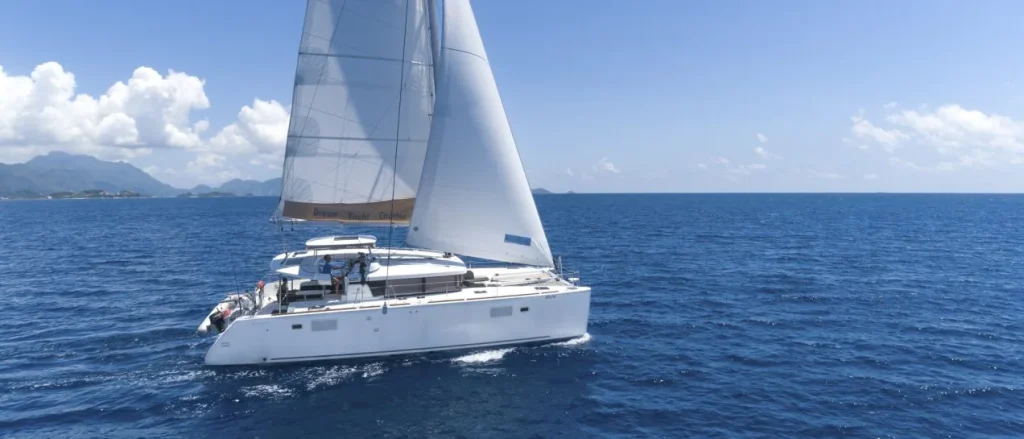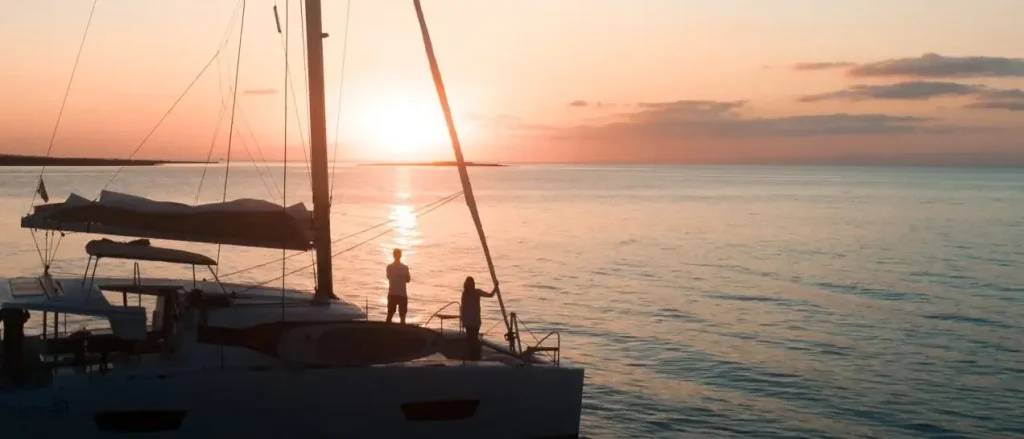The Bois Joli Hotel uses the Revbell RMS.
[Interview] Ambre Cipolin, co-manager of the Bois Joli Hotel, shares her experience with the Revbell...
See more
We spoke to Aurélien Fayolle, Revenue Manager at Dream Yacht Worldwide.


+3%
revenue per boat thanks to tariff optimization and dynamic steering.
25 %
of the fleet integrated in the pilot bases during the first phase of RMS deployment.
I’m Aurélien Fayolle, Revenue Manager at Dream Yacht Worldwide. Our company specializes in bareboat yacht charters for people who know how to sail, and we also offer skippered and hostess options for those who are unfamiliar with sailing. We also offer cabin charters.
Our company was founded 20 years ago, with our first base in the Seychelles. Today, we have 850 boats in nearly 50 bases around the world.
I’ve been with Dream Yacht for ten years now, initially in charge of BtoB sales. In 2019, our CEO took the decision to set up a department dedicated to Revenue Management, and I took on this role.
Initially, my mission was to create the whole process, as we were still using catalog rates and annual brochures. Gradually, we evolved by adjusting our rates more and more dynamically, while maintaining Yield Management strategies, with strong price variations between high and low season periods.
In the Yacht Charter sector, the norm is to publish rates once a year, with special offers for push periods and destinations, but with no real rate adjustment during the year. This has taken some getting used to on the part of our customers.
Currently, one of our objectives is to increase profitability per yacht, which has led us to implement a more precise process. As the Yacht Charter industry does not use RMS, we turned to the hotel industry for our research. We contacted several companies, including Revbell, and decided to adopt this solution!
After contacting Revbell and exchanging several times, we met Romain Charié and Florent Manotta at the Paris Boat Show in 2022. We quickly made the decision to sign: although we had looked at several systems, Revbell’s RMS seemed to be the most suitable because of its flexibility and the company’s multi-sector expertise. And it was recommended to us by several of our contacts!
The adaptation took a little longer than we had initially envisaged. In Yacht Charter, we work with GDSs, the hotel industry’s equivalent of PMSs, but the way GDSs work is less modern than in the hotel industry, which required adjustments on both sides.
A concrete example from Revbell concerns a fundamental aspect of yacht charter: the promotion of the year of construction of the boats, by age category, with annual modification at Dream Yacht. This was an essential criterion that had to be added, and it required some development. Added to this was the fact that we sell boats on an individual basis, unlike category-based inventory in the hotel business.
A final point to consider was that boats move. So, if demand is higher in a given region, we can adjust our offer by moving boats. For example, if we have 20 boats in Marseille and 20 in Toulon, and demand rises in Toulon, we can decide, port space permitting, to move to 17 boats in Marseille and 23 in Toulon for the following season.
Today, all the necessary adaptations to these specificities have been made to the RMS!
As with any new system, the early stages can be a little confusing, but once I’m immersed in it, I find RMS quite intuitive and logical. What’s more, we get excellent support from our Account Manager!
I think that the mapping system is very well designed, in particular thanks to the possibility of grouping boats according to different criteria specific to each base, which is very appreciable. With around 50 bases, flexibility at this level is essential, as we don’t have the same types of boats in each base.
Another aspect that seems important to me is the fact that the system is based on artificial intelligence. The idea is for the RMS to improve progressively according to the data collected, the choices I approve or not, and the various suggestions put forward by the Nancie AI.
Finally, the way the alerts are presented is really practical. We can visualize season patterns and sales curves while examining our schedule, which makes it easier to make decisions to adjust rates according to alerts.
We didn’t implement RMS Revbell on all our bases immediately. We started with 7 pilot bases, which vary in size but represent around 25% of our fleet. What I’m seeing today, using the alerts on these pilot bases since last summer, is that for departures in 2024, they have progressed more favorably compared to 2023 than the non-pilot bases.
In fact, it assists us in the decision-making process. Most of the time, I would have opted for the same choices, but thanks to the RMS alerts, I make them much earlier. And the months saved can make a huge difference!
Our target for next year is to increase revenues per boat by 3%, and this tool should clearly enable us to achieve it!
We’re already thinking about future projects with Revbell, in particular a tool that would enable us to optimize the purchase of our boats. Every year, we acquire new boats, and have to decide on what basis to position them. The idea is for the tool to provide us with strategic information to make informed decisions on the best allocation of boats. This is something you’ve already implemented for camping companies.
Discover the first RMS capable of adapting to multiple industries. Request a demo and see how a flexible solution can transform your revenue management.
[Interview] Ambre Cipolin, co-manager of the Bois Joli Hotel, shares her experience with the Revbell...
See more[Interview] Côme Chupin, Chief Operating Officer at Solestia, shares his experience with the Revbell teams:...
See moreCamille Léger heads up Revenue Management at Europcar Mobility Group. She shares with us what's...
See more